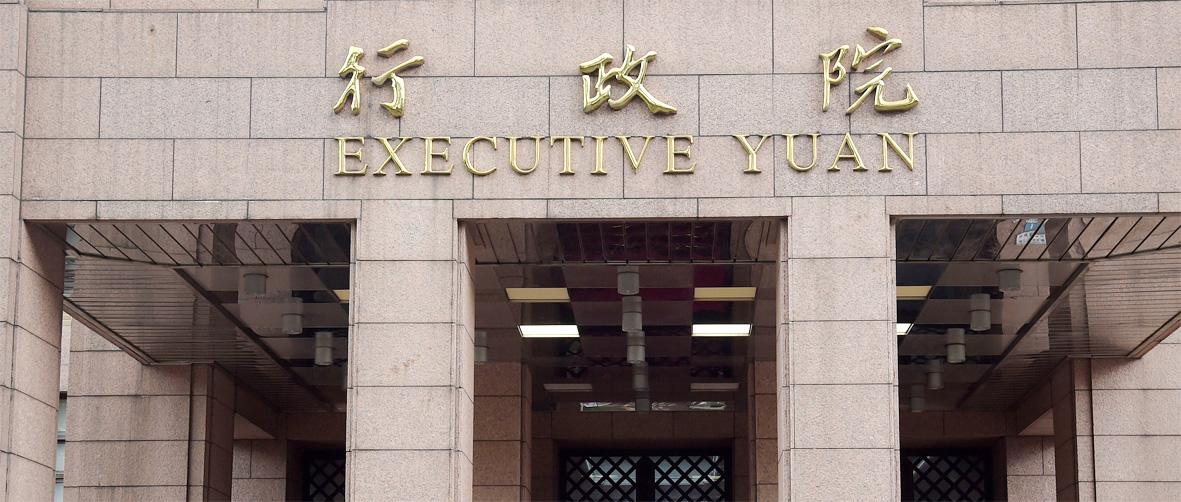The Executive Yuan on Thursday approved draft amendments to the Extradition Act (引渡法) that would allow for the extradition of Taiwanese nationals to other countries for criminal trial.
The current act allows the government little leeway to grant requests for a Taiwanese national to be extradited to another country, Wang Nan-chun (汪南均), a senior official at the Ministry of Justice, told a news conference at the Executive Yuan.
This is not compatible with the interests of justice and international cooperation, Wang said.

Photo: CNA
The 52 proposed amendments would allow Taiwan to enter into extradition arrangements under the principle of reciprocity, it said.
The government would be able to extradite citizens accused of an offense that carry a prison sentence of more than three years under Taiwanese law, but which cannot be feasibly prosecuted here.
Taiwanese convicted of a crime by a foreign court could be extradited if they have yet to serve a prison sentence, which must be longer than one year.
The current extradition law is obsolete, and the inconsistencies between the law and its practice must be fixed, Wang said.
Although Taiwan has not dealt with formal requests for extradition in nearly 40 years, this can could change any time as the country has extradition treaties with a dozen foreign governments, she said.
The flaws in the current law have led to legal woes, she said, citing the case of a Taiwanese citizen surnamed Wen (翁), who arrived in Taiwan after being accused of murder in Canada.
Neither country could prosecute Wen for the alleged crime without evidence, and Canadian courts could not secure his extradition until he was arrested while traveling in South Korea in 1998, she said.
The Extradition Act, introduced in 1954, is applicable only in cases that involve a foreign country with which Taiwan does not have a separate extradition agreement.
That country must file an extradition request through the Ministry of Foreign Affairs, and is then reviewed by the Taiwan High Court.
If the High Court grants the request, the matter is referred to the president for confirmation.
The draft amendments seek to give the final say to the Cabinet instead of the president, and to allow for a follow-up court order on extradition for a maximum two months.
The draft amendments also list grounds for refusing an extradition request, including risks to Taiwan’s sovereignty, national security, public order, or international reputation.
Extradition could also be denied if the accused is being prosecuted based on race, nationality, gender or status, or is at risk of torture in the country that filed the request, the draft amendments say.
The proposed changes are to be reviewed by the Legislative Yuan.

The Coast Guard Administration (CGA) yesterday said it had deployed patrol vessels to expel a China Coast Guard ship and a Chinese fishing boat near Pratas Island (Dongsha Island, 東沙群島) in the South China Sea. The China Coast Guard vessel was 28 nautical miles (52km) northeast of Pratas at 6:15am on Thursday, approaching the island’s restricted waters, which extend 24 nautical miles from its shoreline, the CGA’s Dongsha-Nansha Branch said in a statement. The Tainan, a 2,000-tonne cutter, was deployed by the CGA to shadow the Chinese ship, which left the area at 2:39pm on Friday, the statement said. At 6:31pm on Friday,

The Chinese People’s Liberation Army Navy’s (PLAN) third aircraft carrier, the Fujian, would pose a steep challenge to Taiwan’s ability to defend itself against a full-scale invasion, a defense expert said yesterday. Institute of National Defense and Security Research analyst Chieh Chung (揭仲) made the comment hours after the PLAN confirmed the carrier recently passed through the Taiwan Strait to conduct “scientific research tests and training missions” in the South China Sea. China has two carriers in operation — the Liaoning and the Shandong — with the Fujian undergoing sea trials. Although the PLAN needs time to train the Fujian’s air wing and

Taiwanese celebrities Hank Chen (陳漢典) and Lulu Huang (黃路梓茵) announced yesterday that they are planning to marry. Huang announced and posted photos of their engagement to her social media pages yesterday morning, joking that the pair were not just doing marketing for a new show, but “really getting married.” “We’ve decided to spend all of our future happy and hilarious moments together,” she wrote. The announcement, which was later confirmed by the talent agency they share, appeared to come as a surprise even to those around them, with veteran TV host Jacky Wu (吳宗憲) saying he was “totally taken aback” by the news. Huang,

The American Institute in Taiwan (AIT) put Taiwan in danger, Ma Ying-jeou Foundation director Hsiao Hsu-tsen (蕭旭岑) said yesterday, hours after the de facto US embassy said that Beijing had misinterpreted World War II-era documents to isolate Taiwan. The AIT’s comments harmed the Republic of China’s (ROC) national interests and contradicted a part of the “six assurances” stipulating that the US would not change its official position on Taiwan’s sovereignty, Hsiao said. The “six assurances,” which were given by then-US president Ronald Reagan to Taiwan in 1982, say that Washington would not set a date for ending arm sales to Taiwan, consult